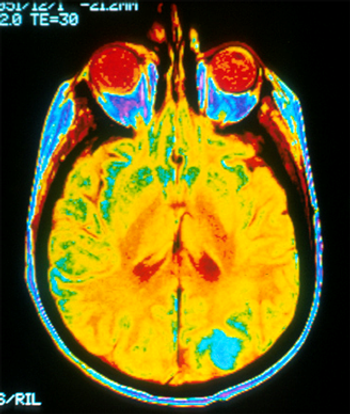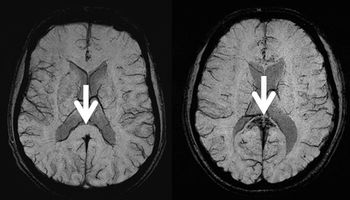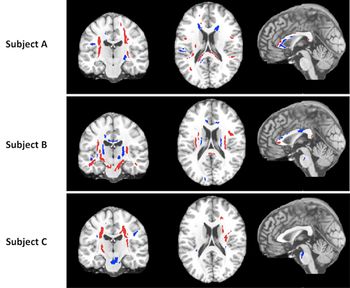
After several years of strong growth in use of MRI, trends are reversing, with fewer scans performed.

After several years of strong growth in use of MRI, trends are reversing, with fewer scans performed.

A Rhode Island hospital is adding an MRI to the emergency department. Is MRI a good diagnostic tool or not necessary on an emergency basis?

MRI soon after mild traumatic brain injury may show linear hemorrhagic lesions in the brain that could provide a target for acute therapy after the injury.

Physicians are using MRI to assess the association between sciatica symptoms and lumbar-disk herniation, despite controversy over its validity.

MR fingerprinting could provide a non-invasive method of identifying diseases through a novel approach to data acquisition, post-processing and visualization.

Brain MRIs migraine sufferers reveal abnormalities in cortical thickness and some surface area. These measurements could improve understanding of migraines.

Most lumbar spine MRIs are unnecessary; most MRIs for headache are necessary. Physicians should strictly adhere to appropriate imaging guidelines.

The FDA has approved gadolinium-based contrast agent Dotarem (gadoterate meglumine) for MRI of the central nervous system.

3D MR images reveal some patients show signs of lasting structural damage to the brain after sustaining just one concussion.

The FDA has approved the Advisa DR MRI SureScan pacing system, a second-generation pacemaker designed for use with MRI machines, according to Medtronic.

MR elastography is the preferred method for assessing liver stiffness and is growing in availability. Here’s the background, benefits, and future of this nascent modality.

Bilateral dual-energy contrast agent-enhanced digital mammography is as effective as MRI in detecting known primary breast tumors.

Combining fluorodeoxyglucose-PET, MRI and cerebrospinal analysis significantly increases the accuracy of predicting Alzheimer’s disease progression.

CHICAGO - High-altitude cerebral edema, the end stage of severe acute mountain sickness - once thought to be reversible - causes microbleeding on the brain.

Increased use of MRI to evaluate newly diagnosed breast cancers has not resulted in an increase in contralateral prophylactic mastectomy.

Changes in tumor enhancement detected by post-gadolinium (Gd) T1-weighted MRI are highly predictive of which patients with recurrent glioblastoma brain tumors will benefit from second-line therapy.

CHICAGO - The brain’s ability to compensate for a traumatic injury could result in a new treatment approach, encouraging the brain to heal itself.

Brain changes from post-concussion syndrome are visible on MRI.

Physicians may be able to identify children at risk for epilepsy if they undergo EEG and MRI within days of having a febrile seizure.

Upgrade from 1.5T to 3T MRI? Invest in a wide bore machine or new software tools? Here’s what you need to know about the latest MRI advances.

Time-resolved multi-frame MRI provides better detects significant differences in coronary artery wall thickness, allowing docs to ID early-stage coronary disease.

In honor of Nuclear Medicine Week, the Society of Nuclear Medicine and Molecular Imaging highlights four major advancements in the field.

Diffusion-weighted imaging performed with MRI for breast cancer screening may reduce the number of preventable breast biopsies.

Medical imaging manufacturers are calling on Congress to protect the national helium reserve to avoid negatively impacting MRI production and patient access.

Dedicated breast MRI systems offer significant improvement in performance and diagnostic accuracy.